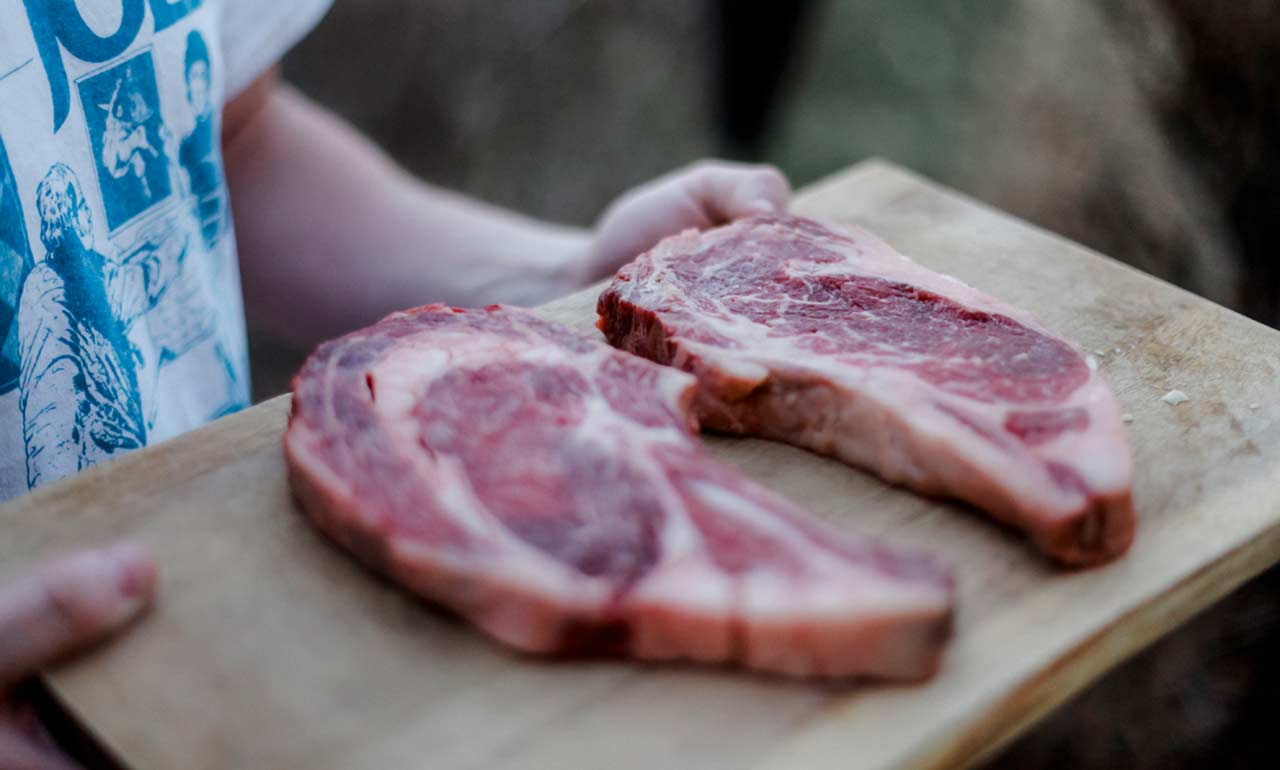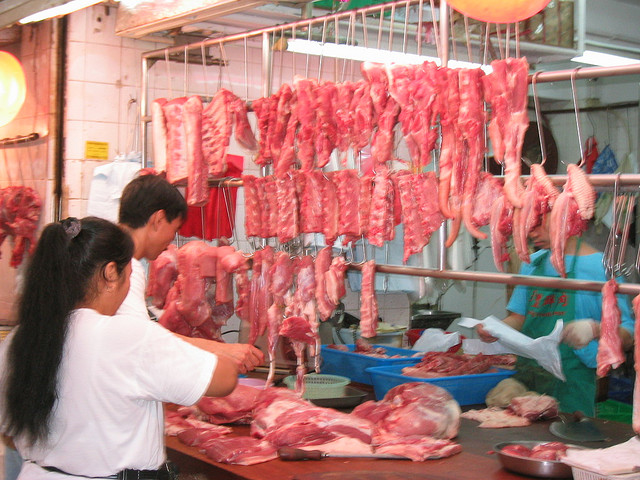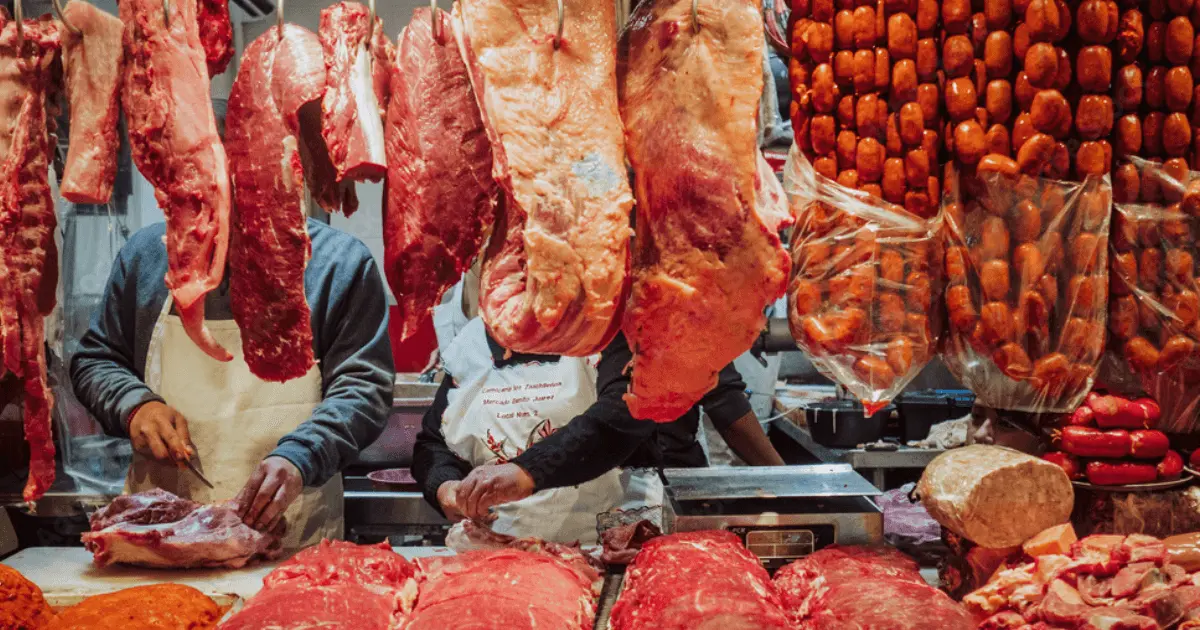Why Selecting a Meat Market Over a Grocery Store Makes a Distinction in Preference and Quality
The difference between acquiring meat from a customized market versus a grocery store often depends on the nuanced layers of preference and quality. Meat markets commonly emphasize freshness, sourcing their items from regional ranches, which not only improves taste yet likewise cultivates lasting practices. Additionally, the knowledge of knowledgeable butchers can supply invaluable insights right into selecting the right cuts for various culinary applications, making certain a more tailored experience. The effects of these choices expand beyond simple flavor; they raise crucial questions regarding the more comprehensive influence on consumer habits and regional economic climates. What else might be at risk?

Quality of Products
Prioritizing quality is a significant benefit of selecting a meat market over a supermarket. Meat markets generally provide items that are sourced in your area and processed with a concentrate on keeping optimum quality. Unlike supermarkets, where meat may be stored for prolonged periods, meat markets frequently obtain day-to-day shipments, making sure that their supply is constantly replenished with high-grade cuts.
Additionally, meat markets normally have a much more reliable supply chain, lessening the time from ranch to table. This fast turn over not just boosts the flavor and texture of the meat yet additionally gives customers with assurance relating to the quality of the items they acquire. The skilled butchers at meat markets can likewise provide valuable insights into the freshness of their offerings, as they are thoroughly accustomed to their providers and the conditions under which the meat is managed.
Furthermore, meat markets typically focus on whole cuts and specialty items that may not be offered in supermarkets, allowing customers to discover a variety of alternatives that are fresher and a lot more savory. This commitment to freshness eventually adds to a remarkable cooking experience, making meat markets an attractive option for critical consumers.
Sourcing and Sustainability
The dedication to top quality at meat markets expands beyond quality to incorporate sourcing and sustainability techniques. Unlike huge grocery stores, which frequently depend on mass-produced items, meat markets prioritize honest and neighborhood sourcing. This approach not only sustains neighborhood farmers and ranchers but also reduces the carbon footprint related to carrying meat over lengthy ranges.

Furthermore, meat markets often use a variety of cuts and specialty meats that reflect the periods and neighborhood culinary practices. This dedication to sustainability promotes a connection in between consumers and their food sources, advertising openness pertaining to the beginnings of the meat they acquire. By choosing meat markets, customers can appreciate not just enhanced flavors however likewise the complete satisfaction of sustaining sustainable and responsible agricultural techniques.
Specialist Expertise and Suggestions
While purchasing at a meat market, customers take advantage of the expert understanding and individualized suggestions used by skilled butchers. These experts are normally well-trained and have substantial experience in the meat sector, enabling them to provide understandings that go his response much beyond the essentials found in a supermarket. They can assist clients on choosing the appropriate cuts for particular dishes or celebrations, ensuring optimal taste and tenderness.

In addition, butchers frequently take the important link time to involve with customers, addressing concerns and sharing pointers that are not easily offered in a supermarket setup. This degree of individualized service fosters a deeper link in between customers and their food, ultimately elevating the general culinary experience. By choosing a meat market, consumers get to a wealth of expertise that can dramatically influence their cooking and pleasure of meat.
Taste Profiles and Range
When exploring the offerings at a meat market, clients are commonly rewarded with a varied array of taste profiles and cuts that are typically inaccessible in supermarkets. Unlike mass-produced meat products, which typically prioritize harmony, meat markets curate their options based upon top quality and regional uniqueness. This causes a selection of meats that mirror distinct preferences, structures, and preparation methods.

Seasonal and locally sourced alternatives better enhance the experience, as these products typically have exceptional freshness and flavor. The educated butchers at meat markets can guide clients on the best cuts for details dishes, guaranteeing that each option lines up with preferred taste accounts and cooking strategies. On the whole, the variety and high quality located in meat markets not just raise the cooking experience but additionally motivate exploration and testing in home food preparation.
Supporting Regional Economic Situations
Choosing a meat market not only enhances cooking experiences through diverse flavor accounts but likewise plays a significant role in supporting regional economic situations (bagley meat market edwardsville il). When customers go with meat markets over larger supermarket chains, they are more probable to involve with services that source their items from neighborhood ranches and producers. see post This technique promotes a lasting agricultural environment, urging farmers to maintain typical approaches that yield high-quality meats
Moreover, meat markets usually utilize local personnel, which contributes to job creation and retention within the neighborhood. The financial impact expands beyond the prompt organization; cash spent at local establishments often tends to distribute within the neighborhood, profiting various fields such as transportation, retail, and advertising and marketing. This regional investment aids boost the general financial health of the location.
Additionally, meat markets usually emphasize openness and honest sourcing methods, which resonate with customers increasingly concerned concerning the beginnings of their food. By selecting to purchase from these facilities, customers not just take pleasure in exceptional items however also verify their dedication to sustaining their community's economic climate. Essentially, selecting a meat market is a deliberate choice that nurtures both personal fulfillment and more comprehensive financial vigor.
Conclusion
Picking a meat market over a supermarket dramatically affects taste and top quality. Overall, the benefits of choosing a meat market extend past private choices, influencing more comprehensive environmental and economic elements while raising the art of cooking.
Unlike supermarkets, where meat may be kept for extensive durations, meat markets frequently receive day-to-day deliveries, making certain that their stock is regularly replenished with top notch cuts.
The experienced butchers at meat markets can also give important understandings into the quality of their offerings, as they are intimately acquainted with their distributors and the problems under which the meat is handled.
Furthermore, meat markets typically supply a selection of cuts and specialty meats that mirror the seasons and regional culinary traditions. By choosing a meat market, customers get access to a wealth of knowledge that can substantially affect their food preparation and enjoyment of meat.
Unlike mass-produced meat products, which usually prioritize uniformity, meat markets curate their selections based on top quality and regional specificity.